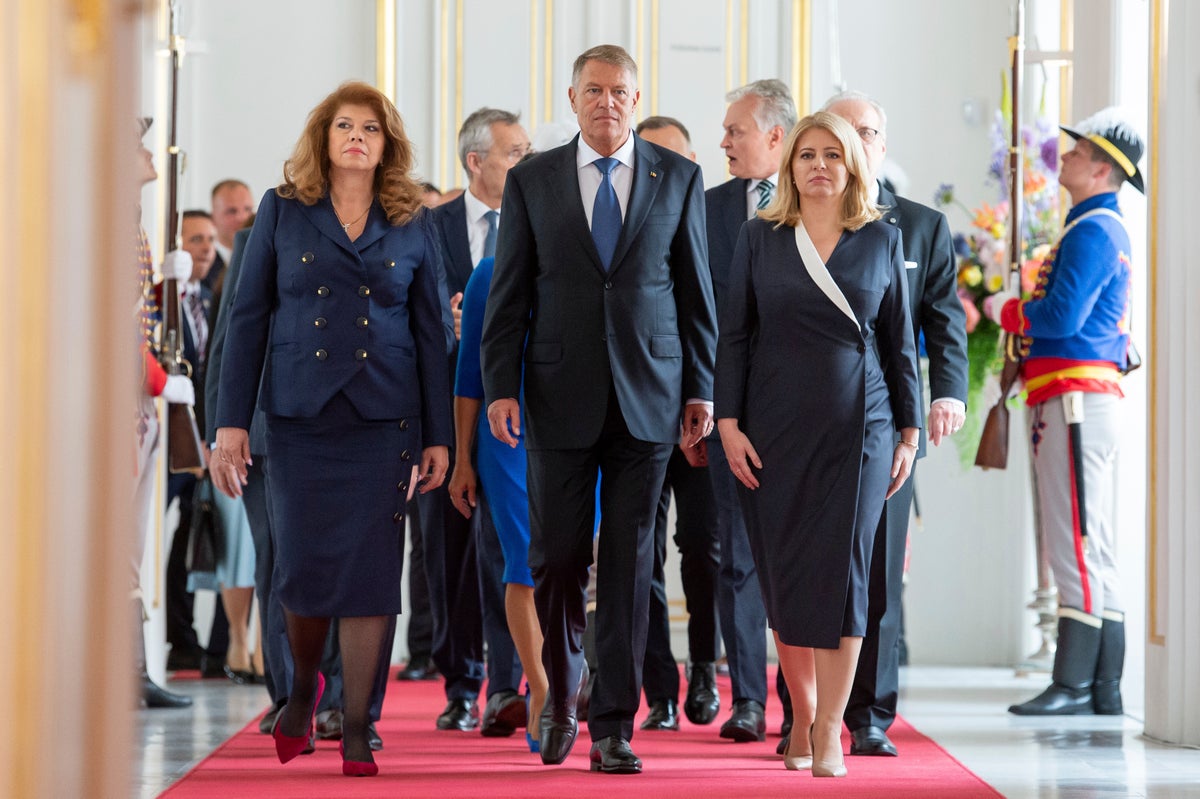
NATO allies should aim to further boost their support for Ukraine and for its aspiration to become a member of the alliance, the leaders of nine Central and Eastern European countries said Tuesday.
The presidents of an informal group known as the Bucharest Nine, the nations in the easternmost parts of the NATO alliance, met in Slovakia's capital, Bratislava, to discuss their common approach at the NATO summit scheduled for July 11–13 in Vilnius, Lithuania.
“We aim for a more robust, multi-year, and comprehensive support package for Ukraine, which will reinforce its defence capabilities also by implementing NATO standards and increasing interoperability with NATO,” they said in a statement to conclude their meeting, which was also attended by NATO Secretary-General Jens Stoltenberg.
“In light of Russia’s war of aggression, we will continue our strong support to bolster Ukraine’s capacity to defend itself and to relieve the humanitarian catastrophe.”
The leaders said they “expect that in Vilnius, we will upgrade our political relations with Ukraine to a new level, and launch a new political track that will lead to Ukraine’s membership in NATO, once conditions allow.”
The Bucharest Nine came together in response to Russia's annexation of the Crimean Peninsula from Ukraine in 2014. The nine countries are Bulgaria, Czech Republic, Estonia, Hungary, Latvia, Lithuania, Poland, Romania and Slovakia.
At their meeting in Warsaw in February, U.S. President Joe Biden assured those nations that worry that Russia could move to take military action against them next if he’s successful in Ukraine that NATO’s mutual defense pact is “sacred” and that “we will defend literally every inch of NATO.”
NATO responded to Russia's full-scale invasion of Ukraine in February 2022 by deploying multinational battlegroups in Slovakia, Hungary, Romania and Bulgaria. They complement another four deployed in 2017 in the three Baltic states and Poland, to expand NATO’s presence from the Baltics to the Black Sea.
"Russia is the most significant and direct threat to Allies’ security and we must be prepared for it to remain so," the presidents said. “We expect that the Vilnius Summit will further strengthen NATO’s defence posture on the Eastern flank in order to deter and deny any opportunity for aggression.”







